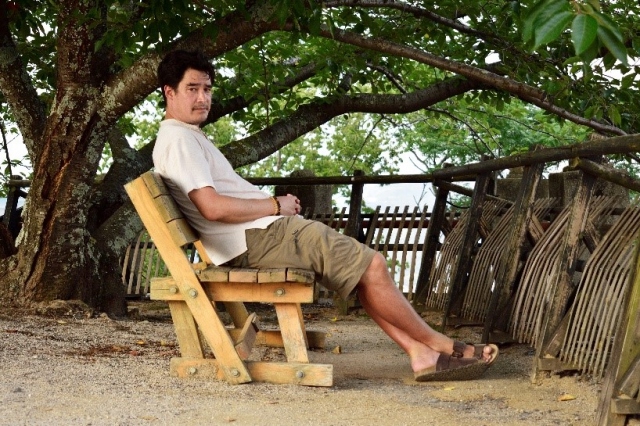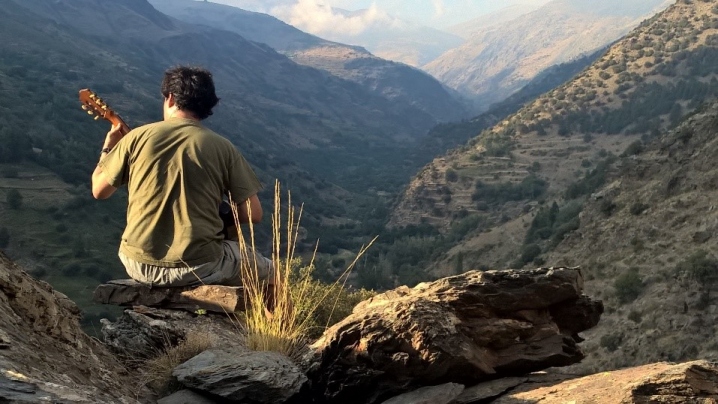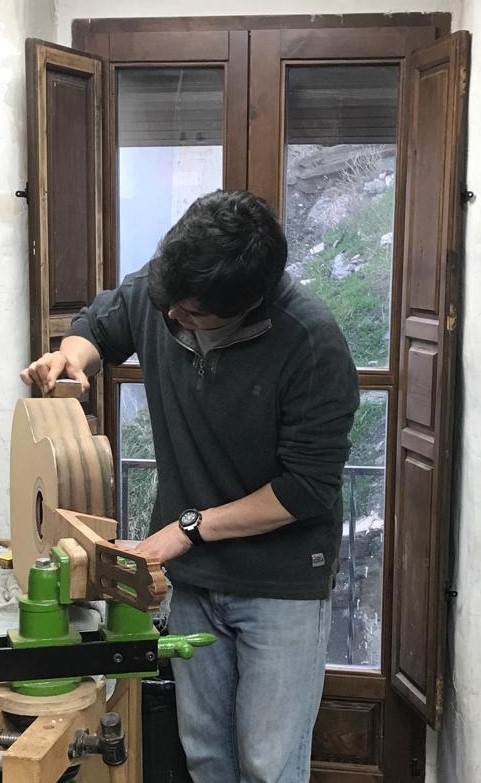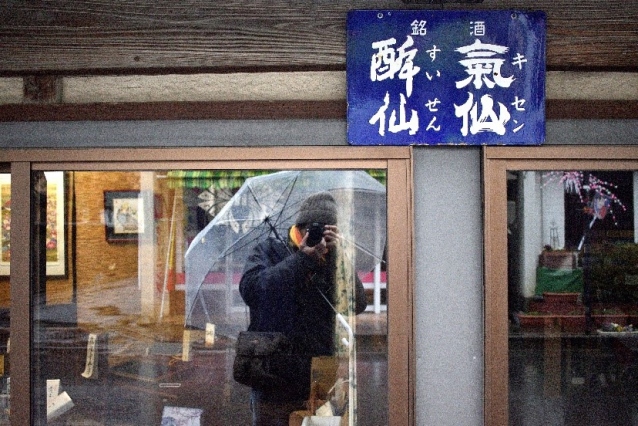外国語学部NEWS
Japanese is proving to be a tough nut to crack!(日本語は超難しいな!)サミュエル・温・トーマス先生 (英米語学科特任講師の紹介)
2022.06.22(水)
英米語学科
数回に分けて英米語学科所属のネイティブ講師のインタビューを掲載します。
英語教師として日本で教えるようになったきっかけ、趣味、スポーツや音楽
数回に分けて英米語学科所属のネイティブ講師のインタビューを掲載します。
英語教師として日本で教えるようになったきっかけ、趣味、スポーツや音楽などの話題、日本での異文化体験などをご紹介してくださいました。皆さんが興味のある話題を語学サロンで話題にしてみてはいかがでしょうか?
英語教師として日本で教えるようになったきっかけ、趣味、スポーツや音楽などの話題、日本での異文化体験などをご紹介してくださいました。皆さんが興味のある話題を語学サロンで話題にしてみてはいかがでしょうか?
1.To start, could you introduce yourself briefly?
Well, my name is Sam, I'm from England, though my mother is Japanese, from Osaka. Although I was born in England, I have spentquite a lot of my life outside it, in East and West Africa, South, Southeast and East Asia, and both Spanish- and Portuguese-speaking
Latin America. I really enjoy and appreciate the richness of social and cultural diversity which is perhaps reflected in my decision to study Social Anthropology at university. I have learnt different languages at different stages of my life, French,
Mandarin, Portuguese, and Spanish, Burmese when I was really young, though I have to say that all but Spanish have kind of disappeared due to the lack of practice and exposure. Japanese is provingto be a tough nut to crack! I enjoy all sorts of
things,both unhealthy - drinking and eating too much (it is difficult not to in Japan!), and healthy - sports and outdoor activities, for instance. I really like travelling and, so far, have found Japan to be really rewarding in this regard. So,
I look forward to continuing to explore the different corners of this country when I can.

2. How did you end up in Japan?
As I am half-Japanese, I was keen to spend some time in Japan at some stage in my life and see what it was all about. I was also the only member of my family who had not had any experience of living here (I had been on visits to see my relatives, of course, which usually involved short trips around Japan). There was an opportunity to come here and teach at a university which seemed like a good opportunity to fulfill this desire of mine. Thankfully, I was given the job and spent two and half years teaching at that university before moving on. I now find myself at the foot of Takaosan, which does not seem like a bad place to be!3. What are some hobbies or things that you enjoy doing?
I try to develop my interests and take on challenges, so having hobbies that interest me and are challenging is important. To these ends, I have taught myself how to play the classical guitar which is a great technical challenge and I think the music, generally-speaking, has just about everything one could wish for. I have always enjoyed being outdoors, in environments of all kinds, so activities like hiking, swimming, and photography are all hobbies of a sort, though I can't say that I do them enough. As for where these take place, it would be hard to choose one environment over others. Beaches, seas, mountains, rivers/streams and forests all seem pretty good to me. Luckily, there are a lot of all of these in Japan, which is a far more beautiful country than I had expected. I also like wandering around urban areas and enjoy visiting nice, local streets and markets. I used to play a lot of sports when I was younger, but my sporting life has been progressively reduced to tennis, basically, and golf, when I have the opportunity. Since I have been in Japan, I have taken up karate, Goju Ryu, more specifically, and this has probably become my most regular free-time activity. I really enjoy it, though I have to say it gets rather sweaty in the Japanese summer.
4. What do you find most enjoyable about teaching?
I suppose the thing that I most enjoy is developing a good rapport with my students and engaging with them as people with unique characters, not simply as students. I think that relationships lie at the heart of every classroom, so I hope that they feel comfortable talking with me and also, obviously, enjoy our lessons. Beyond the immediate satisfaction that one gets when a lesson has clearly gone well, over the longer term, seeing students progress, take on challenges, develop as people, are perhaps among the most enjoyable things about being a teacher.5. What culture shock have you experienced while living in Japan?
As I am half-Japanese, I had obviously been exposed to quite a lot of aspects of Japan, namely the food, and values, perhaps, so this is a tricky one to answer. But, in terms of what made life difficult when I first arrived (and still does though to a
lesser extent!), I would have to say it is the language, both spoken and written. I was not brought up speaking Japanese, so my linguistic skills were limited when I arrived, to say the least. In the beginning, it was a struggle and perhaps alienating
to not be able to communicate or express myself freely about even the simplest of things. While I have improved, there is still a long way to go...

6. What topics do you feel you would want to chat for your English salon?
As I am new to English Salon, I am hesitant to commit to any particular topic just yet. I would say that I am keen to speak about anything that would be of interest to the students who turn up and address topics that they would find stimulating in some way.7. Any messages for Takushoku students?

So far, I would say that it has been very nice to meet all of you. I have been really impressed with the general level of English in my classes and the good character of the students who come to them. I still feel very new, am still settling in and feeling
my way around, so dofeel free to introduceyourselves and help! Nevertheless, I have been very pleased to meet you all and look forward to meeting even more of you in the weeks, months and years ahead!
オン・キャンパス留学のすすめ~授業以外でもネイテイブ教員と「語学サロン」でカジュアル・トーク!~(6&7月語学サロンスケジュール)